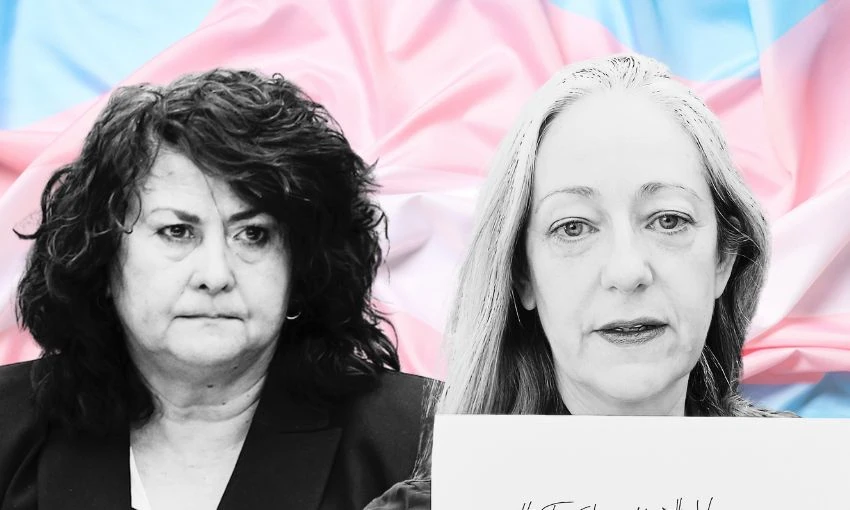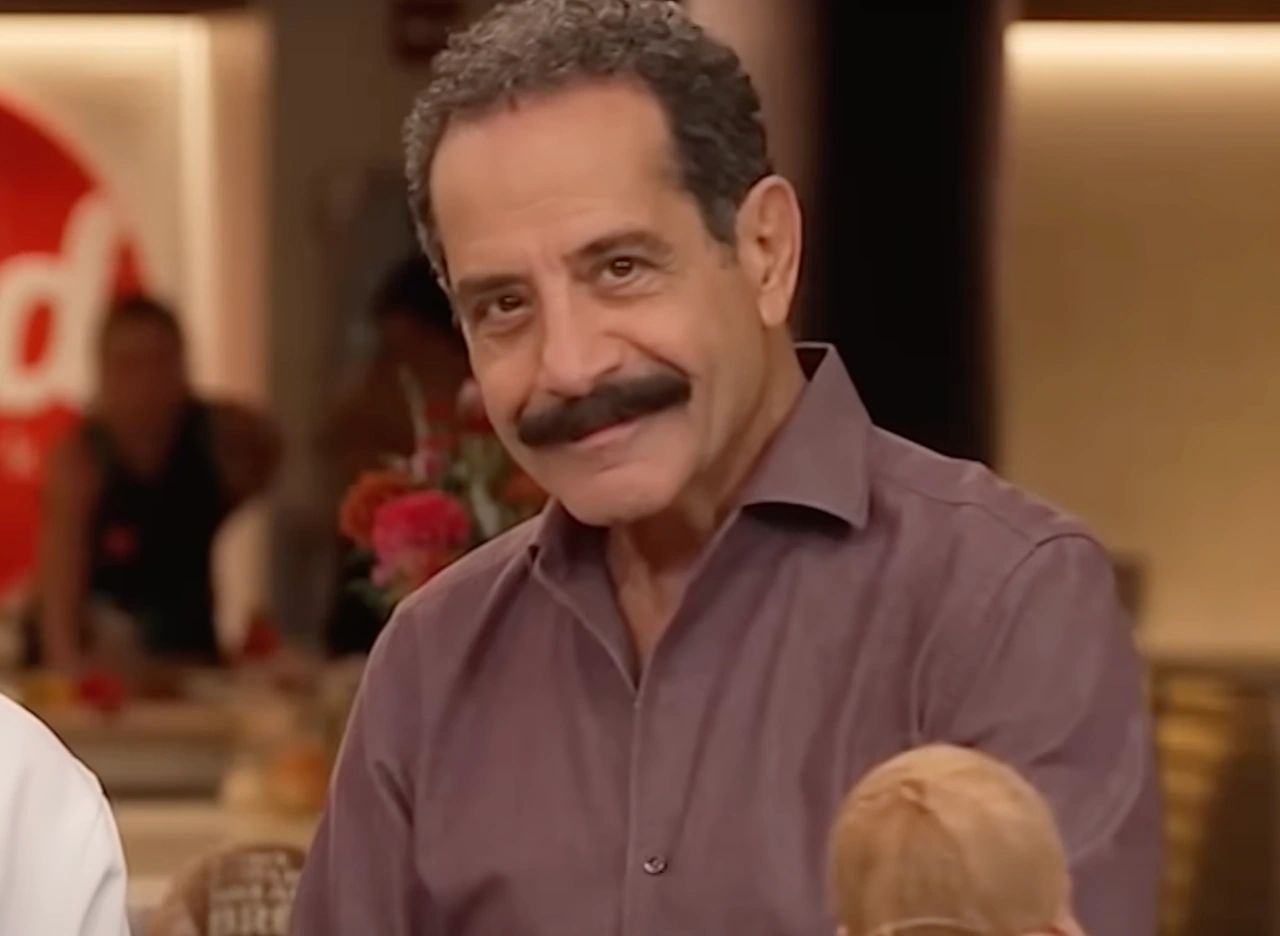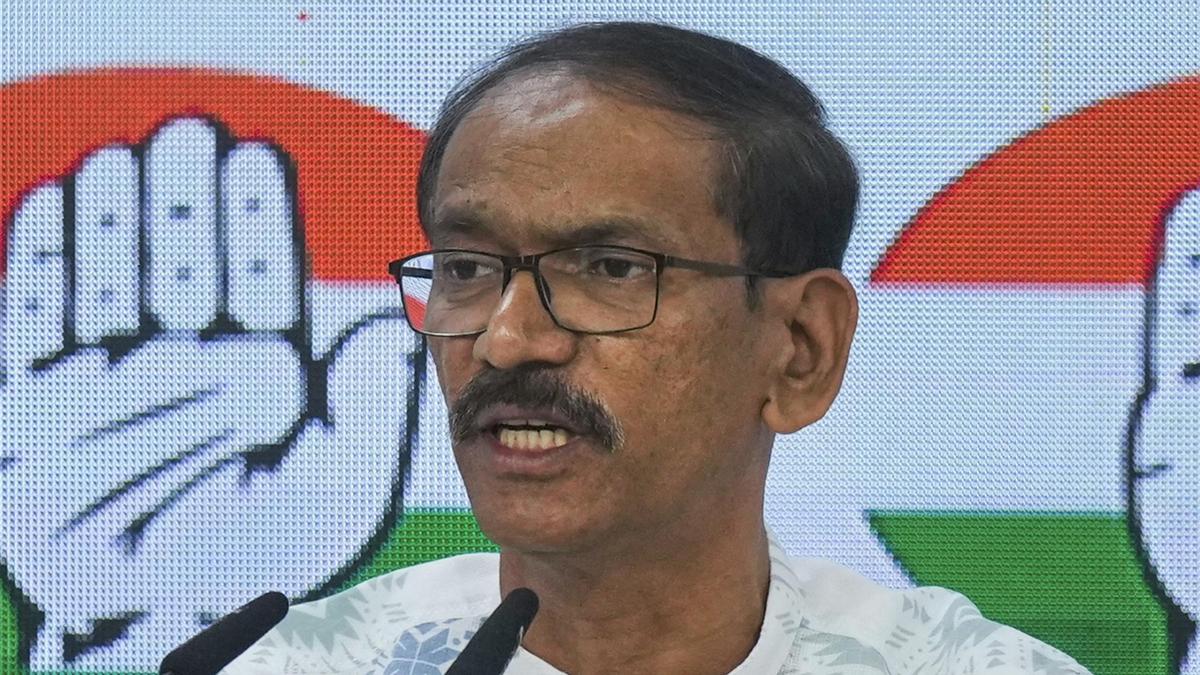Copyright thespinoff

While the associate health minister hosted an Irish anti-trans activist to discuss ‘women’s rights’, around the corner, the Human Rights Review Tribunal heard evidence of the ‘extreme’ and ‘vicious’ nature of trans-exclusionary sentiment. Irish anti-trans activist Helen Joyce met with associate health minister Casey Costello at parliament on Wednesday before holding an event for supporters at parliament’s Grand Hall, hosted by Act MP Todd Stephenson. Joyce, of the UK’s gender critical lobbying group Sex Matters, is in the midst of a nationwide speaking tour organised by the Free Speech Union (FSU), which brought her to Wellington this week. An Act Party spokesperson told The Spinoff that Stephenson accepted an approach to host the event because “he was happy to ensure the FSU and its members had a space to exercise their free speech”. The Grand Hall is available to be hired for events for a fee of $4,500. New Zealand First’s Costello met with Joyce in her role as the association minister for health with responsibility for women’s health, and told The Spinoff she did so because “it was important for me to talk to someone who advocates for women’s rights”. “New Zealand First has a position around protecting women’s bathrooms, around making sure women are safe in sport. Those were the subjects we spoke about,” said Costello, who recently advised the interim CEO of Health NZ to refrain from using language such as “pregnant people”. The minister said she preferred not to describe Joyce’s views as anti-trans or gender critical – “she’s pro women’s rights”. ‘Worst sort of human rights abuse’ Neither Costello nor Stephenson heard Joyce’s speech in parliament, though Act Party MPs Simon Court and Cameron Luxton, as well as more than a hundred FSU members and activists, were in attendance. The event was MCed by the FSU’s new chief executive Jillaine Heather, who made reference to The Spinoff’s questioning of Costello over her meeting with Joyce – the minister was disappointed that “nothing else she was doing was media worthy”, Heather told the crowd. Describing herself as “here from Terf [trans-exclusionary radical feminist] island”, Joyce spoke for over an hour on her criticisms of “trans ideology”, which she described as “very simple, but very wrong”. That trans people should be allowed to use a bathroom that corresponds with their gender is the “worst sort of human rights abuse” on women, Joyce claimed. She referred to gender medicine as “junk”, compared trans people to flat Earthers, misgendered them and suggested trans women were predatory in using women’s bathrooms. Joyce wouldn’t go into the details of her “private” conversation with Costello, but told the crowd that much of her political lobbying revolved around puberty blockers and the “suicide myth”. She claimed that puberty blockers “do not improve mental health” in trans people – and “having a trans identity does not increase your suicide risk at all”. Joyce referred to a UK report which found that restrictions on puberty blockers have not led to increased suicides, though many other reports point to improved wellbeing and curbed suicidal ideation in trans youth who receive gender-affirming care. She also referenced the Law Commission’s recent Ia Tangata report, which suggested 27 reforms to the Human Rights Act (HRA), including one to cover discrimination faced by transgender or non-binary people and those having “an innate variation of sex characteristics”. Joyce encouraged the crowd to convince their peers of the “harm” of gender ideology, giving the example of her lobbying effort in the UK to have the media cover the story of Sandie Peggie, a nurse recently cleared of gross misconduct after complaining about sharing a changing room with a transgender colleague. When the floor opened up to questions from the room, prominent anti-trans activist Rex Landy asked Joyce how she could persuade others into gender criticism. “It’s the only mental illness that they demand is a civil right,” Landy said of trans people. “I say things that are a bit beyond the pale, because that gives people permission to think what they’re thinking. There’s nothing you could say that’s worse than what I’m thinking.” ‘Many of their expressions are quite vicious’ Meanwhile, 400 metres down the road at the Wellington district court, the Human Rights Review Tribunal closed a chapter on a landmark case that will decide whether discriminating based on transphobic views impedes on human rights. The court heard of the impacts of gender critical views on the trans community. Wellington Pride Festival gave its closing submission in a case brought against them two years ago by anti-trans lesbian activists, who were present for Joyce’s speech. A press release shared by the FSU referred to the hearing imposing a “ban” on Joyce, though she was only unable to sit at the press bench and take notes, as she does not work for an organisation which is subject to the NZ Media Council or Broadcasting Standards Authority. The Human Rights Review Tribunal (HRRT), chaired by Sarah Eyre, is expected to take months to reach a decision in the case of Wellington Pride vs Hilary Oxley and Margaret Curnow of Lesbian Action for Visibility Aotearoa (Lava), who were denied a stall at a 2021 Pride-run event due to their trans-exclusionary views. The HRRT is tasked with deciding whether these views are genuine political opinions worth protection. The closing submission made by Wellington Pride saw lawyer Victoria Casey KC argued that Lava’s views were too inconsistent with the Bill of Rights and the Human Rights Act (HRA), and relied too heavily on “false facts” to be considered political opinion. “If anything, it is a system of fundamentalist beliefs that are clearly not up to discussion,” Casey said. It would not have been the intention of parliament in passing the HRA that opinions infringing on human rights should be protected under the act, Casey argued. “These are exclusionary views,” Casey’s written submission read. “Many of their expressions are quite vicious and/or demeaning, and they often involve assertions of false fact or disinformation.” There is “no coherent basis to draw distinctions” between “polite” and “obviously vicious” expressions of these views, and Lava had not been “shy about expressing quite nasty views in public”. Casey referred to a photo of a Lava member holding a sign reading “drag culture start young, family fun? Or fetish grooming”, and told the court, “This is the exact rhetoric that legitimises and encourages what we call Destiny Church.” Lava’s website labelled “exaggerated” suicide statistics for trans people as a “form of emotional blackmail”, gender identity ideology as “a form of conversion therapy” and sex education in “groomer schools” as “kinky porn”. There are multiple references to young lesbians facing pressure to “mutilate” their bodies and rely on “dangerous drugs”, while another page of Lava’s website encouraged members to refrain from “persuading everyone else to join in [their] fictional life”. A speech presented by Oxley, published to Lava’s website, suggested that trans women were more likely to rape other women. Their views are “absolute and extreme”, Casey said. “This dissonance between what Lava says it is doing and what it is actually doing is a strong feature of this case,” Casey’s submission read.



